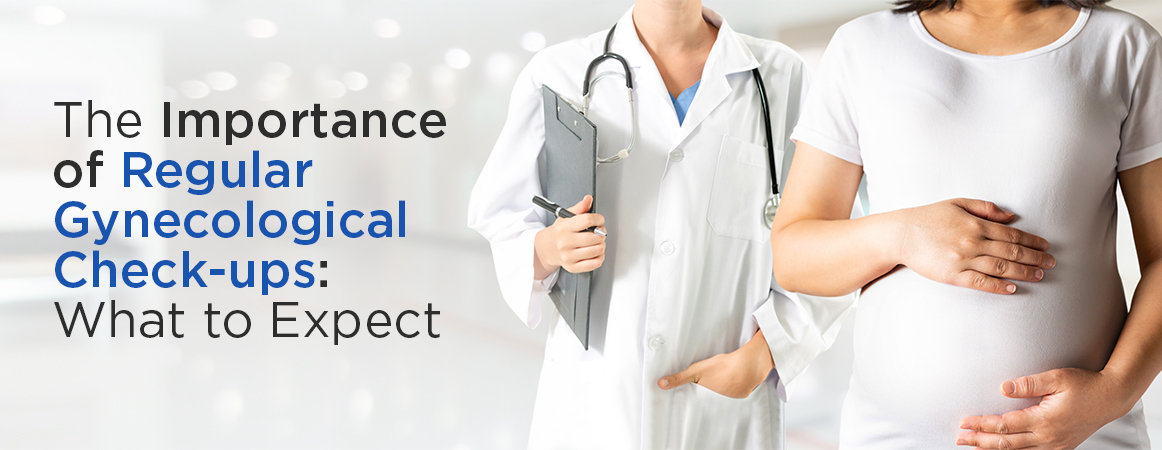The Importance of Regular Gynecological Check-ups: What to Expect
Regular gynecological check-ups are crucial for every woman’s well-being, and finding top gynecologists in Karachi can ensure the best care. These routine visits to a gynecologist specialist in Karachi play a vital role in the early detection and prevention of gynecological conditions.
Why Are Regular Gynecological Check-ups Important?
1. Early Detection of Conditions:
Regular gynecological check-ups allow healthcare professionals to detect potential health issues at their early stages. Conditions such as cervical cancer, ovarian cysts, endometriosis, and sexually transmitted infections (STIs) can be diagnosed and treated promptly, improving the chances of successful outcomes.
2. Preventive Care:
Gynecologists provide essential preventive care, such as administering vaccinations, counseling on lifestyle choices, and educating women about contraception methods. This proactive approach helps women maintain optimal reproductive health and overall well-being.
3. Monitoring Reproductive Health:
For women planning to conceive, regular gynecological check-ups help monitor reproductive health and identify any fertility issues early on. This enables timely intervention and increases the chances of successful conception.
4. Menopause Management:
As women approach menopause, gynecological check-ups become even more critical. Gynecologists can help manage menopausal symptoms, provide hormone replacement therapy when necessary, and assess the risk of osteoporosis and cardiovascular diseases.
5. Addressing Women’s Health Concerns:
Women can discuss their specific health concerns during these visits, such as irregular periods, pelvic pain, or abnormal vaginal discharge. A gynecologist can offer personalized advice and treatment options to address these issues effectively.
What to Expect During a Gynecological Check-up
1. Medical History Review:
At the beginning of the appointment, the gynecologist will review the patient’s medical history, including any previous gynecological issues, surgeries, family history, and current medications.
2. Physical Examination:
A thorough physical examination is performed, which may include a breast examination to check for lumps or abnormalities. The gynecologist will also conduct a pelvic exam to examine the uterus, cervix, ovaries, and other reproductive organs.
3. Pap Smear:
A Pap smear, or cervical cytology test, is a standard procedure during gynecological check-ups. It involves collecting cells from the cervix to screen for cervical cancer or abnormal changes in cervical cells.
4. STI Screening:
Depending on the patient’s age, sexual activity, and risk factors, the gynecologist may recommend STI screening. This may involve blood tests, urine tests, or swabs to detect common infections such as chlamydia, gonorrhea, and HIV.
5. Contraception Counseling:
For women seeking contraceptive options, the gynecologist will discuss various birth control methods, their effectiveness, and potential side effects. This helps women make informed decisions about their reproductive health.
6. Discussion of Menstrual Health:
Menstrual patterns and any associated issues, such as heavy bleeding or severe cramps, will be discussed during the check-up. The gynecologist may suggest lifestyle changes or treatments to manage menstrual problems effectively.
7. Fertility and Family Planning:
For women planning to start a family, the gynecologist can offer guidance on fertility tracking, ovulation, and preconception health. They can also address concerns related to pregnancy and childbirth.
8. Bone Health and Menopause Management:
As women age, bone health becomes crucial. The gynecologist may recommend bone density testing and discuss strategies to maintain bone health during menopause.
9. Health Counseling and Education:
Throughout the visit, the gynecologist will provide health counseling and education on various topics, including maintaining a healthy lifestyle, preventing infections, and recognizing signs of gynecological issues.
Conclusion
Regular gynecological check-ups are essential for every woman’s health journey. The top gynecologists in Karachi provide comprehensive care and guidance, promoting early detection, preventive measures, and overall reproductive health. By prioritizing these check-ups, women can take charge of their reproductive health and overall well-being, ensuring a healthier and happier life. Remember, maintaining regular visits at the best gynecologist hospital in Karachi with a trusted gynecologist is an investment in your health that yields lifelong benefits.


